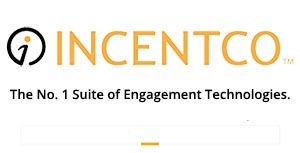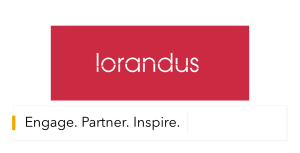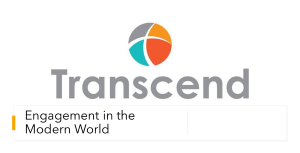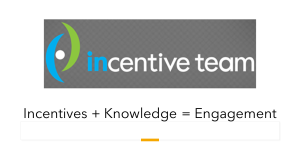The Convergence of Global Sullivan Principles, NAACP Fair Share Model, and European Union Corporate Sustainability Reporting Directive Law
.jpeg) The European Union Corporate Sustainability Directive is simply another step on the long match toward the implementation of stakeholder capitalism principles—enhancing sustainable returns for investors by creating returns for employees, customers, supply chain and distribution partners, and communities drawn from the broadest possible audience of stakeholders.
The European Union Corporate Sustainability Directive is simply another step on the long match toward the implementation of stakeholder capitalism principles—enhancing sustainable returns for investors by creating returns for employees, customers, supply chain and distribution partners, and communities drawn from the broadest possible audience of stakeholders. By Eric Darrisaw
Reverend Leon Sullivan and Global Corporate Responsibility Standards
Sullivan Principles and European Union Sustainability Reporting Directive
NAACP Fair Share Model
Overlapping Principles
The convergence of the Global Sullivan Principles, the NAACP Fair Share Model, and the European Union (EU) Sustainability Reporting Directive represents a shared commitment towards promoting corporate responsibility, social equity, and sustainable practices to benefit both shareholders and all stakeholders. Although these initiatives have distinct origins and contexts, they all contribute to the broader goal of fostering ethical business conduct and advancing societal well-being in a way that enhances long-term returns for both shareholders and society.
This convergence is significant, because it demonstrates that DEI (diversity, equity, and inclusion) should not be segregated from an organization’s overall business strategy as it often is today but rather fully integrated in its business processes to optimize access to talent, customers, distribution and supply chain partners, as any great team does in athletics. See ESM: Why the Racial Equity Battle Must Be Fought on Economic Grounds.
Reverend Leon Sullivan and Global Corporate Responsibility Standards
Reverend Leon Sullivan was an influential American civil rights leader and Baptist minister who made significant contributions to the advancement of human rights and economic equality. While he is most well-known for his involvement in the civil rights movement, Rev. Sullivan also played a crucial role in promoting ethical business practices through the establishment of the Global Sullivan Principles of Corporate Social Responsibility, which contains many of the principles of what today is known as Stakeholder Capitalism.
In the 1970s, Reverend Sullivan became deeply concerned about the role of multinational corporations operating in South Africa during the era of apartheid. He believed that these companies had a responsibility to promote positive social change and improve the conditions of black South Africans. To address this issue, he developed a set of principles that corporations should follow to ensure ethical practices and respect for human rights.
The Sullivan Principles gained widespread recognition and became an influential framework for corporate social responsibility. Many companies, particularly those with operations in South Africa, adopted these principles or developed their own similar codes of conduct. By advocating for ethical business practices and challenging the status quo, Rev. Sullivan played a significant role in raising awareness about corporate responsibility on a global scale.
The Global Sullivan Principles, first published in 1977 and later revised in 1984. The principles provided guidelines for corporations operating in South Africa, urging them to uphold certain standards, including:
Non-segregation: Companies should support the elimination of apartheid policies and work towards equal opportunities for all employees, regardless of race.
Worker rights: Corporations should promote fair employment practices, including fair wages, safe working conditions, and the right to unionize.
Education, training, and advancement: Companies should provide training and advancement opportunities to all employees, irrespective of race or background.
Community development: Corporations should contribute to the economic and social development of the communities in which they operate.
Equal treatment: All employees should be treated with dignity and respect, and discrimination based on race, religion, or gender should be eliminated.
The principles gained widespread recognition and support, both within the US and internationally. They influenced corporate behavior and encouraged dialogue between businesses, governments, and civil society organizations.
By adhering to the Global Sullivan Principles, companies committed themselves to combating discrimination, promoting human rights, and fostering economic development in the countries where they operated.
Although the Global Sullivan Principles were initially focused on South Africa, their influence expanded beyond the apartheid context. They became a benchmark for corporate social responsibility globally and inspired the development of similar guidelines and codes of conduct for businesses operating in various regions of the world.
The principles served as an inspiration for the development of global standards and codes of conduct, such as the United Nations Global Compact, which promotes corporate sustainability and responsible business practices worldwide.
Sullivan Principles and European Union Sustainability Reporting Directive
The Sullivan Principles and the European Union's Corporate Sustainability Reporting Directive share a common goal of promoting responsible business practices and corporate accountability. While they are not directly connected, there are areas of convergence between the two frameworks.
The Sullivan Principles, as mentioned earlier, focused primarily on promoting ethical practices in companies operating in South Africa during the apartheid era. They provided guidelines for multinational corporations to address issues related to racial discrimination, worker rights, and community development. The principles were not specific to sustainability reporting but aimed to improve overall corporate social responsibility.
On the other hand, the European Union has been actively working to enhance sustainability reporting and corporate transparency through various directives. One of the key directives in this regard is the EU Non-Financial Reporting Directive (2014/95/EU) and new CSRD law, which requires large public-interest entities to disclose non-financial information, including environmental, social, and governance (ESG) aspects. See ESM: EEA YouTube Show Recap: EU Sustainability Reporting Directive Will Have Significant Impact.
NAACP Fair Share Model
The NAACP Fair Share Model, Corporate Scorecard, and Morningstar Minority Empowerment Index represent a collective effort to promote diversity, inclusion, and economic empowerment in the corporate world. While these initiatives have distinct methodologies and objectives, they share a common goal of advancing equity and opportunities for under-represented communities.
The NAACP Fair Share Model, originally developed by Reverend Benjamin Lawson Hooks and National Association for the Advancement of Colored People (NAACP), encourages companies to invest in minority-owned businesses, increase supplier diversity, create job opportunities, and support community development in underserved areas.
The Fair Share Model focuses on fostering economic inclusion for African Americans and other marginalized communities. The NAACP corporate scorecard evaluates and measures a company's performance in various areas, including social responsibility, workforce diversity, leadership representation, supplier diversity, and community engagement. The scorecard is a tool for evaluating and encouraging companies to improve their diversity and inclusion efforts.
The Morningstar Minority Empowerment Index is a financial index developed by Morningstar, guided by NAACP scorecard, which tracks the performance of companies that prioritize diversity, inclusion, and empowerment of minority groups. The index provides a means for investors to identify and support companies that demonstrate a commitment to diversity and inclusion.
Overlapping Principles
Corporate Responsibility: All three initiatives emphasize the importance of corporate responsibility. The Global Sullivan Principles, the NAACP Fair Share Model and the EU Sustainability Reporting Directive urge companies to consider the social, environmental, and ethical impacts of their operations. They encourage organizations to adopt fair employment practices, support diversity and inclusion, and contribute positively to communities.
Human Rights and Social Justice: The Global Sullivan Principles and the NAACP Fair Share Model explicitly address issues of human rights and social justice. They promote equal opportunities, combat discrimination, and work towards creating a more inclusive society. By aligning their practices with these principles and programs, companies commit to upholding fundamental human rights and striving for social justice.
Stakeholder Engagement and Voice: The convergence of these initiatives recognizes the significance of engaging all stakeholders in decision-making processes. The Global Sullivan Principles and NAACP Fair Share Model emphasize collaboration with employees, customers, suppliers, and communities to foster dialogue and address social concerns. The EU Sustainability Reporting Directive highlights the need for companies to engage with all stakeholders and consider their interests in sustainability management and reporting.
Sustainability Reporting and Transparency: Both the EU Sustainability Reporting Directive and the Global Sullivan Principles emphasize transparency and reporting of non-financial information. The EU directive mandates certain companies to disclose environmental, social, and governance (ESG) information, enabling stakeholders to assess their sustainability performance. The Global Sullivan Principles advocate for companies to report on their progress in adhering to the principles, ensuring transparency and accountability.
Community Development: The Global Sullivan Principles and the NAACP Fair Share Model emphasize community development and investment. They encourage companies to contribute to the economic growth and well-being of underserved communities through initiatives such as job creation, education programs, and support for minority-owned businesses consistent with the purpose, goals, and objectives of the organization. The EU CSRD requires companies to report on how their management practices impact employees, supply chain, distribution partners and communities around the globe. These initiatives recognize the importance of businesses actively participating in and benefiting local communities.
The convergence between the Sullivan Principles and the EU Corporate Sustainability Reporting Directive lies in their shared emphasis on corporate responsibility, transparency, and accountability.
While these initiatives have distinct origins and may have different regional focuses, their convergence reflects a global shift towards recognizing the interconnection between business success and societal well-being. By aligning with the principles and programs set forth by the Global Sullivan Principles, the NAACP Fair Share Model, and the EU Sustainability Reporting Directive, companies can demonstrate their commitment to responsible and sustainable practices, contribute to social equity, shareholder returns and the expectations of various global stakeholders.
Subscribe to ESM's weekly newsletter.
Click here to learn about the EEA’s bi-partisan Change.org petition to keep politicians out of business management.
 Profit From the “S” of Environmental, Social, Governance (ESG)
Profit From the “S” of Environmental, Social, Governance (ESG)
Through education, media, business development, advisory services, and outreach, the Enterprise Engagement Alliance supports boards, business analysts, the C-suite, management in finance, marketing, sales, human resources and operations, etc., educators, students and engagement solution providers seeking a competitive advantage by implementing a strategic and systematic approach to stakeholder engagement across the enterprise. Click here for details on all EEA and RRN media services.
1. Professional Education on Stakeholder Management and Total Rewards
Strategic Business Development for Stakeholder Management and Total Rewards solution providers, including Integrated blog, social media, and e-newsletter campaigns managed by content marketing experts.
4. Advisory Services for Organizations
Stakeholder Management Business Plans; Human Capital Management, Metrics, and Reporting for organizations, including ISO human capital certifications, and services for solution providers.
5. Outreach in the US and Around the World on Stakeholder Management and Total Rewards
The EEA promotes a strategic approach to people management and total rewards through its e-newsletters, web sites, and social media reaching 20,000 professionals a month and through other activities, such as:
 Profit From the “S” of Environmental, Social, Governance (ESG)
Profit From the “S” of Environmental, Social, Governance (ESG)Through education, media, business development, advisory services, and outreach, the Enterprise Engagement Alliance supports boards, business analysts, the C-suite, management in finance, marketing, sales, human resources and operations, etc., educators, students and engagement solution providers seeking a competitive advantage by implementing a strategic and systematic approach to stakeholder engagement across the enterprise. Click here for details on all EEA and RRN media services.
1. Professional Education on Stakeholder Management and Total Rewards
-
 Become part of the EEA as an individual, corporation, or solution provider to gain access to valuable learning, thought leadership, and marketing resources.
Become part of the EEA as an individual, corporation, or solution provider to gain access to valuable learning, thought leadership, and marketing resources. - The only education and certification program focusing on Stakeholder Engagement and Human Capital metrics and reporting, featuring seven members-only training videos that provide preparation for certification in Enterprise Engagement.
- EEA books: Paid EEA participants receive Enterprise Engagement for CEOs: The Little Blue Book for People-Centric Capitalists, a quick implementation guide for CEOs; Enterprise Engagement: The Roadmap 5th Edition implementation guide; a comprehensive textbook for practitioners, academics, and students, plus four books on theory and implementation from leaders in Stakeholder Management, Finance, Human Capital Management, and Culture.
- ESM at EnterpriseEngagement.org, EEXAdvisors.com marketplace, ESM e–newsletters, and library.
- RRN at RewardsRecognitionNetwork.com; BrandMediaCoalition.com marketplace, RRN e-newsletters, and library.
- EEA YouTube Channel with over three dozen how-to and insight videos and growing with nearly 100 expert guests.
Strategic Business Development for Stakeholder Management and Total Rewards solution providers, including Integrated blog, social media, and e-newsletter campaigns managed by content marketing experts.
4. Advisory Services for Organizations
Stakeholder Management Business Plans; Human Capital Management, Metrics, and Reporting for organizations, including ISO human capital certifications, and services for solution providers.
5. Outreach in the US and Around the World on Stakeholder Management and Total Rewards
The EEA promotes a strategic approach to people management and total rewards through its e-newsletters, web sites, and social media reaching 20,000 professionals a month and through other activities, such as:
- Association of National Advertisers Brand Engagement 360 Knowledge Center to educate brands and agencies.
- The EEA Engagement widget to promote, track, and measure customers/employee referrals and suggestions that can be connected to any rewards or front-end program management technology.
- The Stakeholder Capitalism free insignia to promote a commitment to better business.
- The BMC Brand Club and transactional storefronts to educate corporate and agency buyers on the IRR market.
- The EME Gold program to educate the top 3% of promotional consultants on selling engagement and rewards services.


















